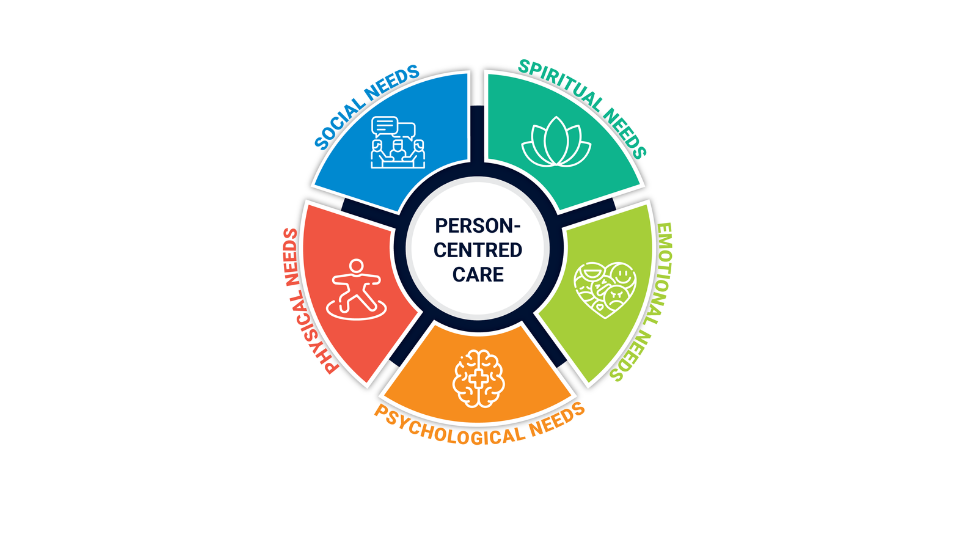
Module 7: Setting goals and expectation of recovery

At the beginning of your rehab program, you will be asked to think of some recovery goals. These are the things you would like to be able to do, or the results (or outcomes) that you want for yourself after your TBI. They can be anything you want – whatever that is important to you!
Your healthcare team will then plan an individualised rehab program to help you achieve your goals. Sounds great right? Well yes – but how do I start?
Don’t worry, this is a common question. Goal setting is a totally new concept to many people who come to rehab for the first time. And it can be overwhelming to suddenly be asked to decide what to focus on. This module will help you to understand the goal setting process better.
Why am I being asked to set my own recovery goals?
Most people who have just come to rehab after months in hospital say it is strange to suddenly be asked to set their own treatment goals. They are generally used to the opposite – having doctors and medical staff tell them what’s important to do to recover quickly.
Hospitals follow a disease-centred model of care (1). Their focus is to treat individual diseases, including brain injury. Your medical team are the experts on how to treat diseases, this is why they decide what is important for you while you’re in hospital.

Rehab programs use a person-centred care approach (1, 2). This approach focuses on caring for the whole person. Your TBI is considered as one of your healthcare needs. But there are also many other aspects to you as a person – including social, spiritual, cognitive, emotional and psychological needs.
Everyone has different values and life plans, including different ideas of what a meaningful life looks like after TBI. That’s why it is important for you to be involved in setting your own recovery goals.
Timelines
Goals can have different timelines. You will be asked to think of a mix of short, medium and long-term goals.
- Activities of daily living: These are activities required to survive in your daily life including showering, toileting, sleeping and eating,
- Mobility: Being able to move around independently in the community including walking, taking public transport or driving,
- Cognition: You may wish to improve your memory, attention or concentration, planning and organising skills,
- Social: These are goals around maintaining or establishing social relationships, maintaining recreational activities, and having fun,
- Emotional: Dealing with mood changes, anger, feelings of grief or loneliess after your TBI,
- Vocational/academic: Returning to studies or work, if this is what you were previously doing.
Challenges to expect when goal setting as a team
Sometimes you might feel that your team might not be on the same page as you about your goals. They might not understand things the same way as you or might view them differently (3). It might seem that they are not supportive of your goals by saying that certain goals won’t be achievable. This can make the goal setting process frustrating.
Although it might not always seem like it, your team are there to support your recovery. Their role is to help you select goals that are personally meaningful, but it is also important that these goals can be achieved safely within a specific timeframe.
It’s common for people starting to rehab to want to jump right into big and exciting goals straight away (4). After all, the aim is to get back to living your usual life, right? For example, your goal might be to get back to riding your motorbike like you did before your TBI. You might feel frustrated when your team will not let you get back on your bike straight away. It might feel like they are not supporting your wishes.
Instead, your team will probably want to start with smaller short-term goals (3, 4). Your physiotherapist might want you to work on your balance, coordination and limb strength first and set goals for you to complete a certain number of exercises in a given period. This might seem boring to you, and being in the gym every day is not as fun as jumping on your motorbike with the breeze on your face! But these smaller skills are needed to build up to gradually getting back on your bike.
Starting with and achieving smaller goals helps to build confidence and motivation, and keep you engaged with therapy.
Research shows that people who only set “big” long-term goals are more likely to experience failure and feel discouraged. This usually affects their motivation and interest to continue with rehab, and their overall recovery (5).

You might also remember from Module 3: What to expect in the early days of recovery that people with TBI can have trouble recognising that they have certain deficits or difficulties (6). Because of this, you might have trouble with the following:
- You might not fully realise how difficult some goals will be,
- You might not have full insight into your brain injury or fully understand how much rehab you need),
- You might find it difficult to recognise behaviours that are not safe.
This is why it’s important to listen to and communicate with your team around you. And while it may not always feel like it, your team are doing their best to keep you safe and help you to make the most out of your time in rehab.
Reviewing your goals
Sometimes, it’s possible that the goals you want to set goals are realistic and achievable but your team doesn’t think you can achieve them. You may feel that your team have underestimated your capabilities. Or perhaps the initial goals you set together were too easy. When goals are too easy, this can also cause frustration and reduce engagement with therapy (7).
It is important to openly communicate with your team about your goals all the way through rehab to see how you are progressing. This ensures that your goals remain achievable, personally meaningful and challenging enough as your abilities change and you grow new skills.
“I get a bit frustrated here. I get annoyed because they were not moving fast enough or giving me enough to do. Because I felt like I fully achieved what they were giving me.”
- Person with TBI
Tips on working with your team on goal setting
- Ask for clarification on the roles (jobs) of everyone in the team,
- Consider if you want your family, friends or caregivers involved,
- Think of what will make you happy,
- Ask for some ideas if you need help in choosing goals,
- Consider if you would feel more comfortable setting goals in another language,
- If you do not understand what your team is asking you, get them to repeat it in simple ways,
- Remember your team are there to support your recovery and keep you safe,
- Work in partnership with your team, not against them.
References
- Grol R, De Maeseneer J, Whitfield M, Mokkink H. Disease-centred versus patient-centred attitudes: comparison of general practitioners in Belgium, Britain and The Netherlands. Family Practice. 1990;7(2):100-3.
- Santana MJ, Manalili K, Jolley RJ, Zelinsky S, Quan H, Lu M. How to practice person‐centred care: A conceptual framework. Health Expectations. 2018;21(2):429-40.
- Dekker J, de Groot V, Ter Steeg AM, Vloothuis J, Holla J, Collette E, et al. Setting meaningful goals in rehabilitation: rationale and practical tool. Clinical Rehabilitation. 2020;34(1):3-12.
- Plant SE, Tyson SF, Kirk S, Parsons J. What are the barriers and facilitators to goal-setting during rehabilitation for stroke and other acquired brain injuries? A systematic review and meta-synthesis. Clinical rehabilitation. 2016;30(9):921-30.
- Wade DT. Goal setting in rehabilitation: an overview of what, why and how. Clinical rehabilitation. 2009;23(4):291-5.
- Prigatano GP, Schacter DL. Awareness of deficit after brain injury: Clinical and theoretical issues: Oxford University Press; 1991.
- Tang TL-P, Liu H, Vermillion WH. Effects of self-esteem and task labels (difficult vs. easy) on intrinsic motivation, goal setting, and task performance. Journal of General Psychology. 1987;114(3):249.